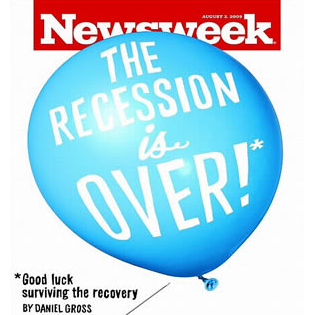
When it comes to promoting economic recovery, the Federal Reserve is not acting in a 'reserved' manner. The U.S. Federal Reserve Bank has a definite plan and defining purpose.
Plan
The FOMC (committee responsible for setting monetary policy) plans to purchase $600 billion in Treasury securities.
Purpose
Encourage economic growth and keep long-term interest rates at a low level.
Reason
The Federal Reserve wants to speed up the process of economic recovery. No doubt, there have been sure signs of improvement. During the third quarter of 2010, consumer spending rose at an annual rate of 2-1/2%.
More businesses also invested in new software and equipment towards year-end. Of course, the statistics have to be looked at in a realistic light. Spending and investment is 'up' compared to the activity in recent 'down' periods.
Yet small gains can be indication of big things in the future. Issues like high unemployment, however, do not disappear from the radar overnight. It could take four or five years for employment rates to return to a normal scale.
Only 103,000 U.S. jobs were created in December 2010 – less than the 150,000 expected for that period. With its pending bond purchase by the end of the second quarter in 2011, the Federal Reserve hopes to encourage economic growth. In fact, a drop in the jobless rate is expected – almost 9% by the end of 2011 – but it will stay above 8% throughout 2012.
Housing Market
On January 7, 2011, Chairman Ben S. Bernanke gave his report (The Economic Outlook and Monetary and Fiscal Policy) before the Committee on the Budget in the U.S. Senate. The overall message in the report was that the economy would be somewhat stronger in 2011. Yet Bernanke referred to challenges in the housing market.
"However, the housing sector remains depressed, as the overhang of vacant houses continues to weigh heavily on both home prices and construction, and nonresidential construction is also quite weak," says Chairman Ben S. Bernanke before the Committee on the Budget, U.S. Senate, Washington, D.C.
The Federal Reserve has reason to worry about the state of the housing market. Three main factors can cause an economic recovery to lose steam. Damage to the credit market and regulatory and tax uncertainty problems can pose danger to an economy on the rebound. As well, problems in the housing market are stumbling blocks in a recovering economy.
Cautious Optimism
Yet there has been an increase in pending and new home sales. The rise amounted to 3.5% in November. These figures were influenced by a flurry of sales (18.2%) in the West. The National Association of Realtors chief economist, Lawrence Yun, explained how 2,000,000 jobs and just a moderate increase in mortgage rates would influence home sales.
"If we add 2 million jobs as expected in 2011, and mortgage rates rise only moderately, we should see existing-home sales rise to a higher, sustainable volume," says Lawrence Yun, National Association of Realtors chief economist.
If lenders returned to safe underwriting standards for credit-worthy buyers, there would be a greater rise in home sales.
Do You Agree With The Federal Reserve Plan to Buy $600 Billion In Bonds?
Image courtesy of realtorestateagent.com